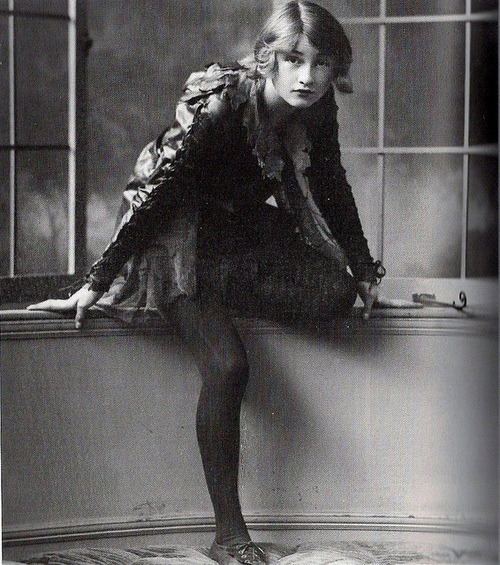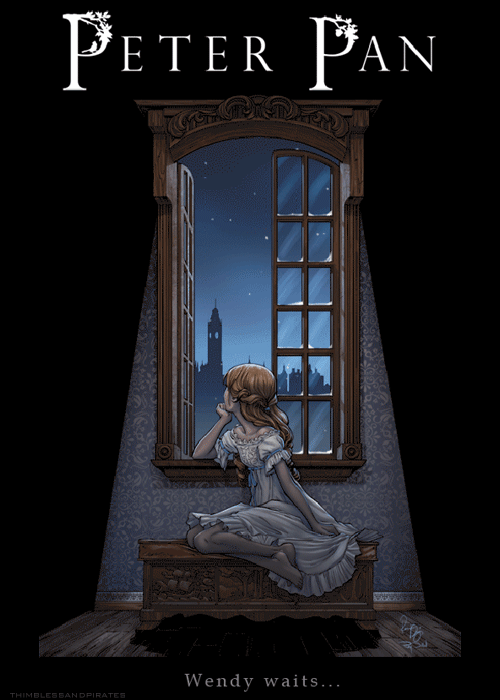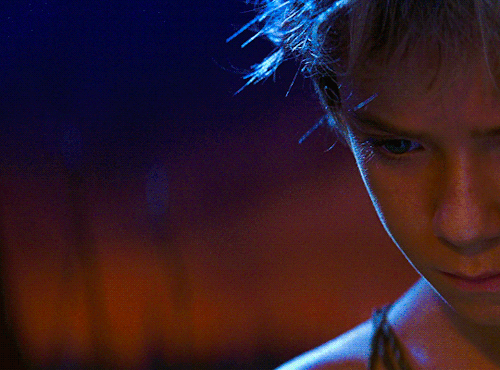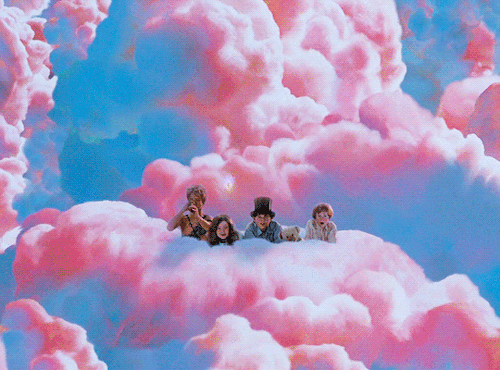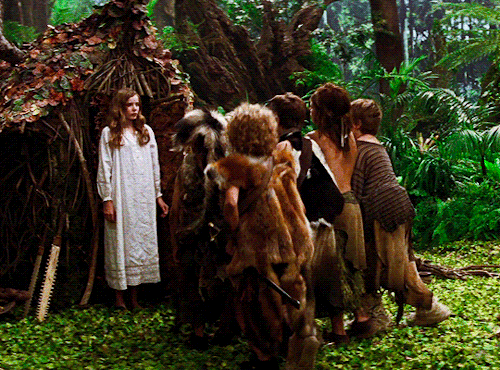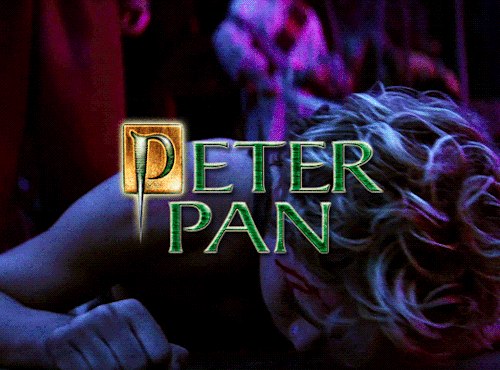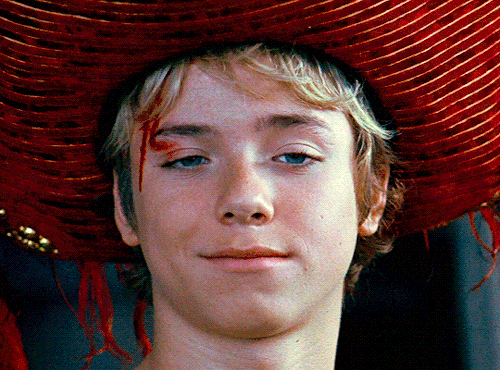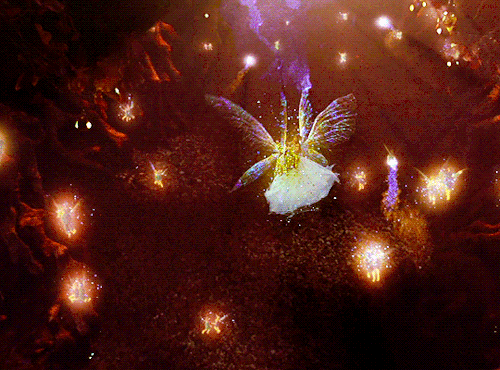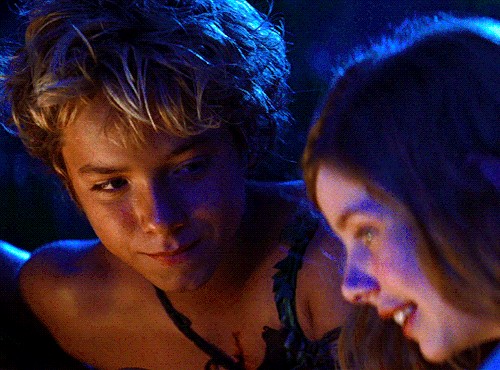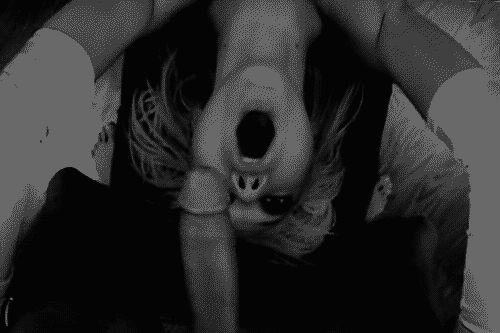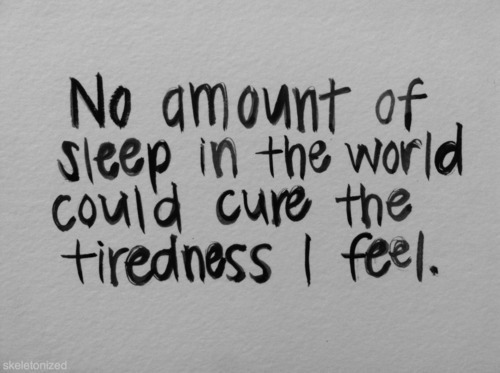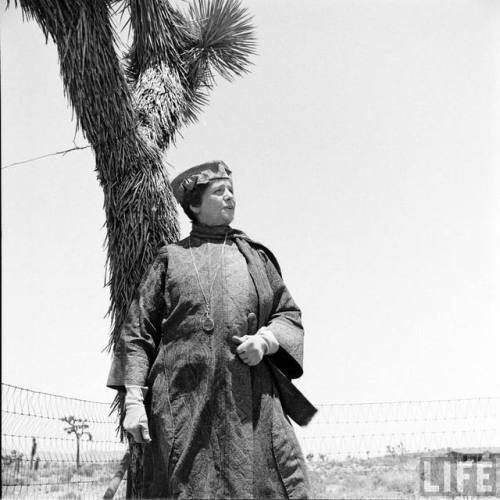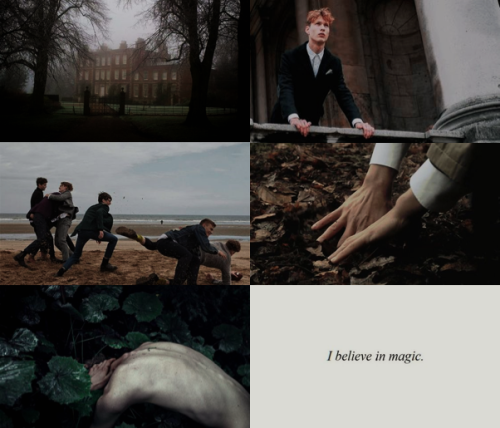#peter pan
Haven’t really been able to work on personal stuff, but I had to redesign book covers for one of my classes



I’m not entirely happy with them, but I like them when I take into account the time crunch and pressure I’m under right now, haha.
(text on back mostly taken from Wikipedia, fonts used are Flowerchild and Brandon Bromley (found on dafont.com) and Avenir. all artwork done by me)
I made this a few days ago because I have this idea of Stray Kids as the Lost Boys from Peter Pan but I just never put it up until now
Woojin
“If you cannot teach me to fly, teach me to sing.”
Chan
“Dreams do come true, if only we wish hard enough. You can have anything in life if you will sacrifice everything else for it.”
Minho
“Stars are beautiful, but they may not take part in anything, they must just look on forever.”
Changbin
“The moment you doubt whether you can fly, you cease for ever to be able to do it.”
Hyunjin
“You know that place between sleep and awake, that place where you still remember dreaming? That’s where I’ll always love you. That’s where I’ll be waiting.”
Jisung
“Do you know why swallows build in the eaves of houses? It is to listen to the stories.”
Felix
“Never say goodbye because goodbye means going away and going away means forgetting.”
Seungmin
“It is not in doing what you like, but in liking what you do that is the secret of happiness.”
Jeongin
“When the first baby laughed for the first time, its laugh broke into a thousand pieces, and they all went skipping about, and that was the beginning of fairies.”
as always, requests are open
Some of ya’ll didnt cry over wendy and peter pan and have a romeo and juliet level impact from that cartoon tragic love story and it shows-
Wendy and Peter Pan did to me what Romeo and Juliet tried to do.
Peter Pan and Nikolai Lantsov would be best friends.
Smallville really just took its formula from Buffy the Vampire Slayer (as did the revival of Doctor Who, same as Angel: the Series doing the same for Torchwood by Russell T Davies’ own admission), which also has a superhero in high school origin story and a strange town overrun with freaky things happening. Smallville’s meteor freaks were exactly like the Hellmouth and the high death rates of their respective student bodies.
Roswell is another show that had a similar setup and was actually the first WB show about aliens with magic powers in high school. Max Evans is not too subtly Clark Kent-like, right down to the famous moment of transforming a lump of coal into a diamond. The alien/human hybrid quartet of Max Evans, Michael Guerin, Isabel Evans and the infamous Tess Harding are reincarnations of alien royalty/elite from a destroyed planet, so the connection is obvious.
Except that show went far further with what would happen if the government found out than Smallville dared beyond a few episodes here and there. Max certainly had more done to him (the White Room and going on the run in the finale) than Clark ever did in that regard. Humans who get a little too close to the inhuman with plans for science or personal gain certainly is a trope that pops up in other genre shows (often humans desiring eternal life at a cost or captive experimentation/torture).
Sheriff Jim Valenti (who was the villain of the Roswell High books the shows were based on!) turned out to be the kids’ fiercest protector, not unlike Lionel Luthor, despite being initial antagonists. Lionel being the king of horrific fathers contrasted hugely with Jonathan Kent. Jor-El’s A.I. practically martyred Jonathan in a trade for Lana Lang, so this version is absolutely not comparable to the Christopher Reeve version’s relationship with Marlon Brando’s! Smallville’s Clark is nearly a reversal of the old films in regards to farm boy Clark being the real deal, not the mere disguises of Superman and the hapless reporter (this is also true of Dean Cain’s iteration), as well as the nurture over nature message of the Kents being his true parents in all but blood, whereas the focus is strictly on Jor-El over Jonathan as the father figure in the 1978 and DCEU versions.
Closest to danger Clark ever got outside of Lex Luthor’s experimentation (only with the anonymous blood vial that eventually led to hybrid Lex/Clark clone test tube baby Conner Kent) was from General Sam Lane and the anti-vigilantism plot, but Clark never got nearly so exposed. Max also told his secret in the first episode, so it’s a stark contrast to how long it took for Clark to tell his love interests and friends. Clark and Lucifer Morningstar are the kings of the long-delayed reveal! By contrast, Angel waited seven whole episodes and most of the rest of the characters mentioned here did so in their first episode, if not their first scene.
The WB was already a home to many shows like Smallville, though it certainly started DC adopting the channel as their home to drop their properties into that already-established format.
Angel: the Series, Smallville and Supernatural were the more masculine side (Angel: the Series and Supernatural are definitely the most mature, horror-based shows, as well) on a channel that also had Buffy the Vampire Slayer (the original genre show on a channel that was heavily just sitcoms and 7th Heaven prior to 1997 and quickly transformed the whole channel), Charmed and Roswell (not to mention Dawson’s Creek and other more soapy, non-genre offerings).
Shows like The X-Files and Buffy the Vampire Slayer were the ones that pretty much formed everything we expect from a modern fantasy/sci-fi/supernatural/horror series now, including the mix of overarching long-form story arcs and soap opera/relationship dramas mixed with the Monster of the Week and seasonal Big Bad formats. Monster of the Week (Smallville used Freak of the Week) and ‘shipping were terms coined by The X-Files’ fandom (yep, the biggest controversy of that show was whether Fox Mulder and Dana Scully should remain platonic colleagues as intended by the creator or become a romantic relationship, which took an interminable slow burn of seven seasons), while Big Bad (and thus arcs surrounding that Big Bad seeded throughout the season) was coined on Buffy the Vampire Slayer. All these terms are used for discussing nearly every subsequent genre show today. Television prior to these shows did not have these formats, minus the old-as-dirt episodic Monsters of the Week, but not using that terminology yet.
Smallville was a marriage of comic book superheroes into the genre show format that was already going strong on the old WB. Some of these other non-comic-origin characters wouldn’t be out of place in the comic world either. Definitely true for Buffy Summers and Angel, as they basically are superheroes. Buffy has the more straight-forward Peter Parker-esque origin story, while Angel’s is told completely non-linear (often through a slow drip of flashbacks–his soul was returned a century prior, not during the course of the show, yet he most certainly didn’t become a hero then).
It’s surprising that Supernatural never quite went all-out with a real comic tie-in presence beyond some short runs early on. Neither the comics or the novels use Castiel much at all, who is the most super-powered main on the roster (so much so that the show writers were terrified to put him in Monster of the Week episodes and even tried to kill him off in seasons 6/7 due to him making the Winchesters irrelevant). Castiel is the Eldritch being-level angelic equivalent of The Little Mermaid trying to understand humanity, but with the tragic ending of the novel.
Clark himself has a mix of Dorothy Gale (check out that Over the Rainbow shot on the bridge in Smallville’s pilot, which is an image also echoed in Luke Skywalker’s binary sunset, followed by him doing an Ariel pulling Lex Luthor from the water) and Peter Pan (more than just the flying boy–he also has an immortality problem) in his DNA.
It’s that little piece of inconvenient canon (alluded to numerous times through Smallville) that is at the heart of the adverse reactions of many Superman purists who were horrified by Smallville’s Clark choosing to live a human life and have a family with Lois in the CW’s Crisis on Infinite Earths. It wasn’t just because Tom Welling still refuses to wear tights, but because it was the real unsolved existential crisis facing the character. Conversations with the Kents, Dax-Ur and General Lane all exposed this issue as an insecurity he had quite early on in the series. It’s hardly teen angst, nor was it with Angel and the Doctor saying it repeatedly to Buffy and Rose; it doesn’t make it teen angst just because they were teenagers. Clark likewise shares the tragedy of many other inhuman immortals (and yet, they keep doing it!) in that he can’t father children naturally with humans without some kind of sci-fi workaround (like Blue or Gold Kryptonite).
We might like to see these characters be Peter Pan forever, but sometimes even Peter needs to grow up (as in Hook), lest he forever remain a tragedy. Make no mistake, the immortality trope is always a tragedy, which is why so many of these characters either run away from seeing it played out or they most desire to live human lives. Having duties greater than themselves and a need to save lives they’d never be able to as mortals are often the reasons for these sacrifices, but it still remains a sacrifice and ultimately a damnation, not a gift. These characters are either doomed to lose everyone they’ve ever loved or go out in a blaze of glory, which is what television shows using the trope are actually daring to show more recently.
Not being a tragic horror story, Superman tends to avoid it, but it’s the same problem. That brief scene in Crisis on Infinite Earths was more in line with Smallville than Superman purists wished.
The Doctor is Peter Pan. It’s most obvious with the imagery of little and big Amelia Pond in her nightgown, but the story with Rose Tyler juxtaposed beside Sarah Jane Smith also shows his Peter Pan-esque tendencies. He’s the immortal who keeps picking up new companions to take on far-off adventures, only to leave them behind over and over again before he has to face their human mortality. Although the Doctor is older than Spock, he has picked up many Spockisms over the years like touch telepathy (yup, the Vulcan mind-meld), the half-human aspect of the 1996 TV movie that fans and the show do their best to ignore and the 10th Doctor’s sacrifice via a glass case of radiation (see The Wrath of Khan).
Angel, of course, is Pinocchio (with a big dollop of Highlander’s Prize), the Beast, the immortality of Peter Pan, Louis de Pointe du Lac and pre-retcon evil!Lestat de Lioncourt (the retconned one is, of course, Spike) morphed into Dr. Jekyll and Mr. Hyde, and a touch of Steve Rogers meets Clark Kent, but with the aesthetic (not character) of Bruce Wayne (that mix is all there). Like Pinocchio and the Beast, there are those major elements of temptation, redemption and atonement.
The Buffyverse definitely borrowed heavily from the sympathetic vampire begun by Varney the Vampire, Nosferatu’s plagiarization of Dracula that gave birth to death by sunlight (see the whole aesthetic of the Buffyverse’s Master), the antiheroization (quite evil initially) in Dark Shadows, the archetypes of Anne Rice (the entire Master + Fanged Four are her lineup–Akasha, Gabrielle, IwtV!Lestat/Louis, Claudia and retcon!Lestat vs. the Master, Darla, Angel(us), Drusilla and Spike), the prosthetics of The Lost Boys and the vampire detective setup of Forever Knight (which copied Barnabas Collins’ cure for vampirism arc, while Angel’s Shanshu borrows more from Highlander’s Prize). Blade and Angel added apocalypse-fighting/comic superheroes to that mix.
Ironically, the more recent examples of the good vampire have gutted their mythologies of evil-default vampires entirely (making the exceptions to the rule far less alienated and unique amongst their own kinds) and certainly kicked out the apocalyptic superheroing for soap opera. The Buffyverse is ironically closer to Anne Rice’s full-blooded, evil, murderous inhuman creatures (no matter the guilt and eating rats in alleys) than it is Twilight and The Vampire Diaries in spite of the human/inhuman romance plots, marking a strong separation between the WB’s era and the CW’s.
That’s a strong example of how the genre show environment has changed in the last two decades, so it’s not just the differences between the eras of Smallville and the Arrowverse/DCEU.
Supernatural is a particularly weird example in that it ran for so long with the same cast (unlike Doctor Who, which is fast approaching its 60th anniversary and has gone through many changes, not just its format) that it was still following the same show format and catering to a generation who grew up along with it (not to mention the actors going from young to middle-aged) from 2005 through 2020. The format all the way to the end (though never again as desaturated, jump-scare horrific as that first season was–its inspirations from The X-Files showed) is most certainly pre-streaming and owes much to its old WB origins using a formula born in the 1990s, despite the CW’s rebranding in 2006. Castiel’s ushering in of the whole angel mythology was the most seismic change in Supernatural’s history, though even he was like a horror creature early on. The show certainly had early comedy episodes, but they definitely got more frequent later. One only has to look at the season 15 premiere’s handling of the Woman in White and Bloody Mary’s returns to see how alien the season 1 atmosphere was to the show by then.
Buffy the Vampire Slayer likewise shed its gothic horror atmosphere and went into the sunlight (not for the better) around the time Angel took his gothic fairy tale-turned-noir with him to L.A. See Lucifer aiming for the same aesthetic in its first season. Smallville was likewise a show that spanned the WB and CW, but before the television landscape completely left that late-'90s/'00s aesthetic. You can definitely start to feel similar differences in the change from Smallville High to Metropolis and Lana to Lois. There’s a pretty stark generational shift in the shows aimed at late Gen-X/older Gen-Y (Millennials) and now Gen-Z (Zoomers). That’s the biggest shift between the WB and the Arrowverse-era CW.
Castiel, despite him learning how to love, is the ultimate example of free will in a mythology that has none by design (he truly did have a “crack in his chassis”) and even adopts a son whom he can finally relate to, ends with him tired, very sad and unloved in return. Not a single character in the history of Supernatural ever tells Castiel that they love him. Frankly, Meg and Crowley, who kept saving his life, showed more care about and affection for him than the Winchesters, particularly Dean (who belittled, refused to help and abandoned Castiel for years before the Jack and Mary drama shattered the relationship irrevocably). Sam, who used to feel the same othering from John and Dean as the Boy with the Demon Blood that got heaped on Castiel if he dared remind Dean he wasn’t “human, or at least like one”, had a bad habit of following his brother in questionable acts like putting Jack in the box. Castiel says he loves others several times, but he never once hears it back. As in The Little Mermaid, Castiel sacrifices himself for someone who will never love him back, except in place of sea form is the black goo of the Empty. At least Jack cared, but you’ll notice Castiel is nowhere to be seen when the Winchesters reunite in Heaven. Not even Sam (who was equally sad and tired at the end, while Dean was just angrily lashing out at everyone while blaming everyone but himself) bothered to place a single photo of Castiel amongst his shrine to John, Mary and Dean. Sam literally knew Castiel longer than he ever knew Mary and his relationship with John was so bad that he left his father and brother to go to Stanford. Boy, did that final episode say it all about Castiel loving, but never being loved in return. Bobby Singer was wrong; it turns out that, for the Winchesters, family did end in blood.
The alienated outsider archetype who doesn’t quite fit in amongst human society (often with an immortality/lifespan problem on top of other interspecies differences), but often desperately wants to find human belonging, love and family, is true of characters like Clark, the Doctor, Spock, Connor/Duncan MacLeod, Angel, Castiel, Lucifer, etc… These are subsequently the shows and storylines that borrow most from the Superman mythos.
See the many takes on Superman II’s Pinocchio plot, except having to give it all up for a higher purpose (not to mention many other Beauty and the Beast, The Little Mermaid, Pinocchio and Peter Pan parallels), such as Angel’s I Will Remember You, Smallville!Clark’s Arrival/Mortal/Hidden, the Doctor’s Human Nature/The Family of Blood and Castiel’s season 9 arc.
That’s Superman and Clark’s real impact on the television landscape.
I think I may have solved a mystery that I didn’t even know was one.
So. In Peter Pan, the novel, this is the first mention of Captain Hook:
“Who is captain now?”
“Hook,” answered Peter, and his face became very stern as he said that hated word.
“Jas. Hook?”
“Ay.”
Then indeed Michael began to cry, and even John could speak in gulps only, for they knew Hook’s reputation.
“He was Blackbeard’s bo’sun,” John whispered huskily. “He is the worst of them all. He is the only man of whom Barbecue was afraid.”Later, we learn this:
Hook was not his true name. To reveal who he really was would even at this date set the country in a blaze; but as those who read between the lines must already have guessed, he had been at a famous public school; and its traditions still clung to him like garments, with which indeed they are largely concerned.
“Barbecue” is Long John Silver from Treasure Island. Jas. is short for James, but in “Captain Hook at Eton,” he’s also called Jacobus. The biblical figure Jacob was renamed Israel.
Blackbeard’s historical boatswain, and also a character in Treasure Island, was Israel Hands.
I’m just saying, if I got a hand chopped off and my last name was Hands… I might want to change it.
‘Lost’ letters reveal JM Barrie and Robert Louis Stevenson’s mutual affection
Many kudos to OP, I’m still processing Captain Hook = Israel Hands. Because of this post, I stumbled upon this 2020 article. It is a fascinating and bittersweet read about Barrie, Stevenson, and the Peter Pan+Treasure Islandconnections.
Now, the letters of JM Barrie to Robert Louis Stevenson – presumed to be lost by several key Barrie biographers for over 70 years - will be published for the first time in a forthcoming book. The letters reveal how ardently the young Barrie both adored and admired Stevenson, who was an older and more established writer. A year into their friendship, which was initiated by Stevenson, Barrie wrote to him: “To be blunt I have discovered (have suspected it for some time) that I love you, and if you had been a woman…” He leaves the sentence unfinished.and
Barrie has a real desire to incorporate Stevenson and his affection for Stevenson in his works, he believes. “I think what Barrie is saying is: if I can never meet Stevenson, because he has unfortunately died, then I want to create the opportunity for our characters to meet.“I think he liked that idea that they could occupy the same world, and could potentially bump into each other.”Okay, but in the context of Our Flag Means Death this becomes about two hundred percent funnier for the following reason:
Captain Hook is framed very much as a darker, more bloodthirsty version of the same ‘gentleman pirate’ archetype as Stede. Like, he has the gentlemanly manners, the fine clothes, the fancy quarters, some pretentions to honour…he doesn’t always carry it off quite as well as he intends to, but this is clearly a man trying to present himself in a very specific way, and that way has a surprising amount in common with Stede’s intended presentation.
Now, I am not sayingthat this is Izzy trying very hard to Pygmalion himself into a version of what Ed apparently wants in a partner that is still compatible with the way Izzy himself needs Blackbeard to be…but I’m not notsaying that either.
…what I am also saying is that I want Izzy to be harassed by a crocodile.
Honestly, given how many “Izzy is in the wrong genre of pirate fiction” posts I’ve seen on Tumblr, it would be just his luck to escape a queer romcom only to end up in a children’s book and/or a Disney animated feature.
Happy Birthday to the Legend and Genious of the world and history. Gary, Indiana. 29 of August 1958 - 7:33pm.
Post link
I think I may have solved a mystery that I didn’t even know was one.
So. In Peter Pan, the novel, this is the first mention of Captain Hook:
“Who is captain now?”
“Hook,” answered Peter, and his face became very stern as he said that hated word.
“Jas. Hook?”
“Ay.”
Then indeed Michael began to cry, and even John could speak in gulps only, for they knew Hook’s reputation.
“He was Blackbeard’s bo’sun,” John whispered huskily. “He is the worst of them all. He is the only man of whom Barbecue was afraid.”Later, we learn this:
Hook was not his true name. To reveal who he really was would even at this date set the country in a blaze; but as those who read between the lines must already have guessed, he had been at a famous public school; and its traditions still clung to him like garments, with which indeed they are largely concerned.
“Barbecue” is Long John Silver from Treasure Island. Jas. is short for James, but in “Captain Hook at Eton,” he’s also called Jacobus. The biblical figure Jacob was renamed Israel.
Blackbeard’s historical boatswain, and also a character in Treasure Island, was Israel Hands.
I’m just saying, if I got a hand chopped off and my last name was Hands… I might want to change it.
‘Lost’ letters reveal JM Barrie and Robert Louis Stevenson’s mutual affection
Many kudos to OP, I’m still processing Captain Hook = Israel Hands. Because of this post, I stumbled upon this 2020 article. It is a fascinating and bittersweet read about Barrie, Stevenson, and the Peter Pan+Treasure Islandconnections.
Now, the letters of JM Barrie to Robert Louis Stevenson – presumed to be lost by several key Barrie biographers for over 70 years - will be published for the first time in a forthcoming book. The letters reveal how ardently the young Barrie both adored and admired Stevenson, who was an older and more established writer. A year into their friendship, which was initiated by Stevenson, Barrie wrote to him: “To be blunt I have discovered (have suspected it for some time) that I love you, and if you had been a woman…” He leaves the sentence unfinished.and
Barrie has a real desire to incorporate Stevenson and his affection for Stevenson in his works, he believes. “I think what Barrie is saying is: if I can never meet Stevenson, because he has unfortunately died, then I want to create the opportunity for our characters to meet.“I think he liked that idea that they could occupy the same world, and could potentially bump into each other.”
novels i’ll never write 4/? { peter pan retelling }
a dying boy. an obsessive search for eternal youth. delinquents. bloody knuckles. lost boys
and an honorary lost girl. someone out for revenge. a new girl with a hidden agenda. sacrifice. surprising kisses. a stolen hand. trust. and maybe some magic, if you just believe…
Post link

